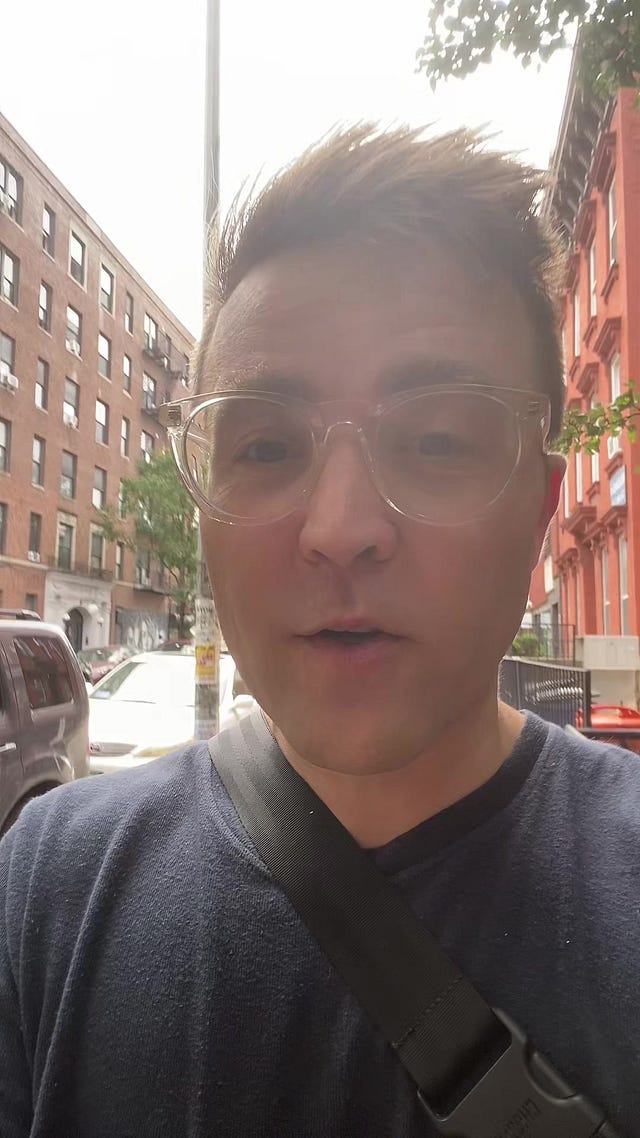“Repetition is not generality. Repetition is the power of difference, the engine of becoming.”
— Gilles Deleuze, Difference and Repetition
We are told we lived in echo chambers. That our beliefs are the result of closed loops, filtered feeds, and ideologically inbred information environments. That we are prisoners of our own preferences, sealed away from truth, nuance, or dissent.
But this is a myth.
Not because repetition doesn’t happen, or because filters don’t exist, but because the concept of the “echo chamber” was always a simplification. It was always a fantasy—an attempt to blame the public for the failures of authority, and to reassert control over a fragmented media landscape.
There are no true echo chambers. There is only noise.
And in that noise, the myth of the echo chamber functions as a kind of Great Other: a fictitious structure we pretend governs reality, shaping our discourse and sense of self. But like all Great Others, it does not exist. It was invented to explain away complexity—and to conceal where authority really resides.
Contemporary communication is not about echo, but entropy. Not sealed silos of agreement, but algorithmic cacophony—designed not to reflect, but to provoke. People are not safely insulated from dissent. They are overexposed to it, to the point of paralysis and performativity.
Platforms don’t just sort us—they scramble us. A single scroll can take us from tragedy to memes to outrage to softcore ideology. The signal is not stable. The repetition is not uniform. And what “echoes” are not beliefs, but affects—emotional tones, tonal gestures, vibes.
To call this an echo chamber is to misunderstand the medium entirely. McLuhan warned us: the medium is the message. And in a medium defined by speed, fragmentation, and acceleration, the message is not consensus. It is crisis.
Deleuze teaches us that repetition is not about identity—it is about transformation. Nothing repeats exactly. Everything carries a difference. What we see online is not echo, but mutation. Even the memes change with every repost, every remix, every context.
The concept of the echo chamber implies a center—a stable origin that gets reflected outward. But the truth is more unsettling: there is no origin. There is only circulation. The authority we imagine behind the content, the institution behind the knowledge, the author behind the post—all are hollowed out. We are left with a performance of structure, but no structure.
This is why the Great Other matters. In Žižek’s reading, the Great Other is the fiction that authority believes in more than we do. It’s the supposed shared standard, the imagined legitimacy, the universal gaze. But in digital culture, the Great Other has collapsed. There is no one watching. No one enforcing the rules. Just metrics, mirrors, and masks.
Metaviews does not echo because we do not issue hot takes—we issue shards. Thoughts that cut, questions that irritate, perspectives that dislodge. Our signal cannot be repeated because it is not meant to soothe or affirm. It is meant to trigger cognition.
This is not a failure of reach or a flaw in distribution. It is a feature. It is why we resist virality. Why we distrust audience capture. Why we do not broadcast to bubble-people, but to frequencies of thought.
We are not trying to be the voice of the Great Other. We are speaking through its absence.
The danger was never the echo chamber. The danger is the simulation of echo—a weaponized feedback loop built by platforms to manufacture belief, not to reflect it. The illusion that if something repeats enough, it must be true. Not because of shared understanding, but because of shared exposure.
This is not consensus. This is control.
And that’s the final irony: the echo chamber myth warns against ideological isolation, but its true function is to silence dissent. To discredit those who refuse simple answers. To accuse critical thinkers of being trapped in bubbles, even as they resist the entire chamber.
We are not in echo chambers.
We are in echo factories.
And the only way out is to listen differently.
 Tiktok failed to load.
Tiktok failed to load.Enable 3rd party cookies or use another browser






Brilliant! Mr. McLuhan would approve.
OMG - again.